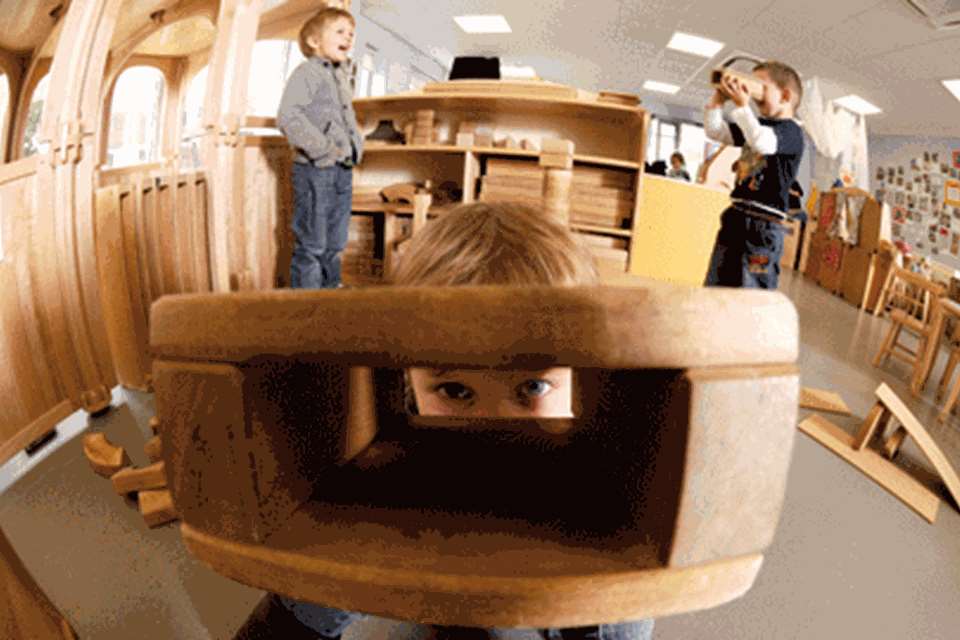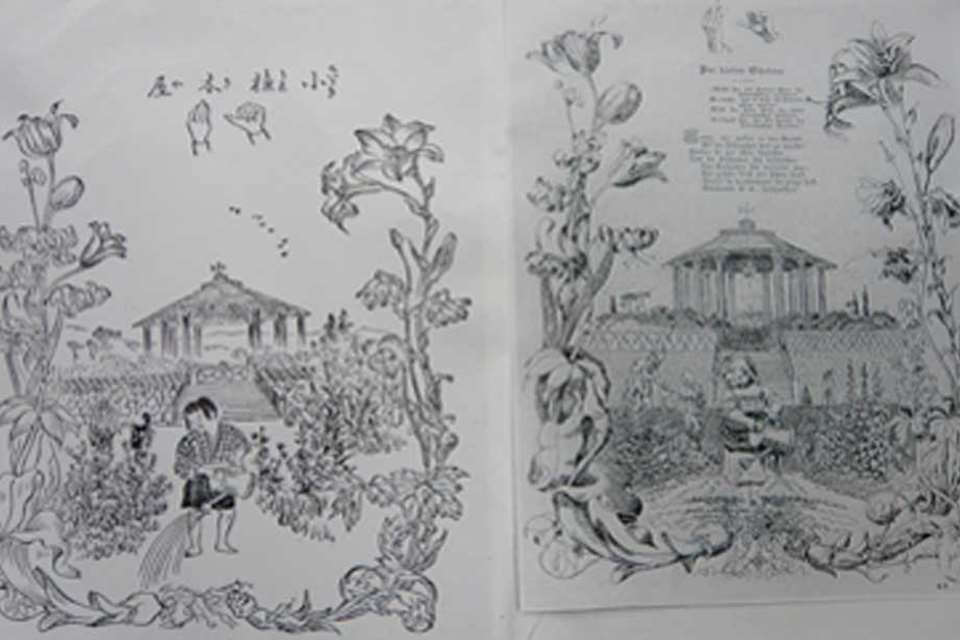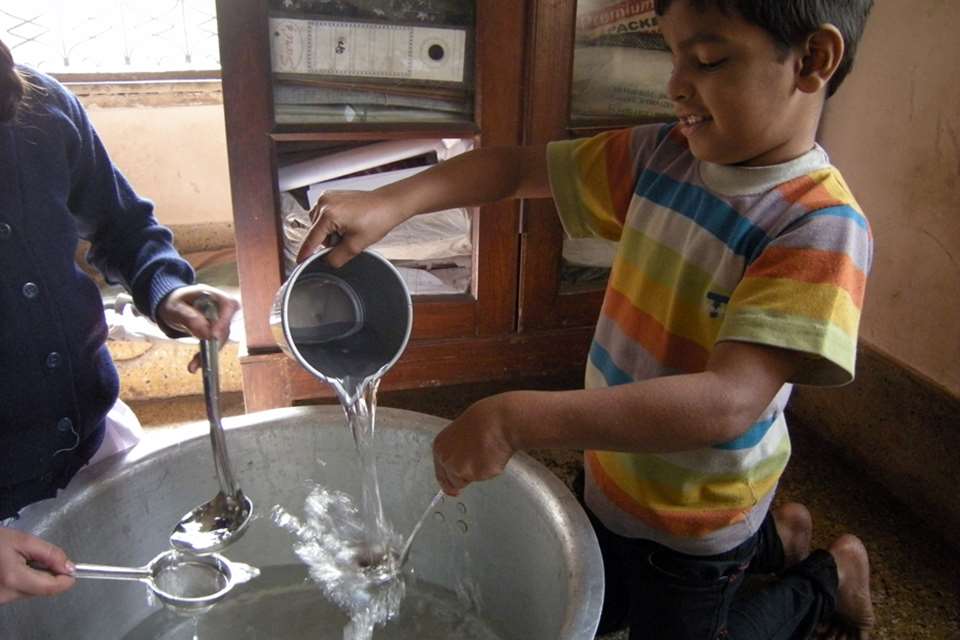Learning & Development: Froebel - A different story?
Ruth Thomson
Monday, July 27, 2015
Seeing Froebelian principles in action in a township in South Africa gave Early Childhood Studies students Valeria Scacchi and Jennifer Partridge a fresh view on what the philosophy can look like in practice. Here, they share their experiences.

As MA and BA Early Childhood Studies students at Froebel College, University of Roehampton, we were offered an opportunity to participate in the Froebel Trust project in Soweto, South Africa. Here, we would like to share how this experience brought Froebel's principles to life and deepened our understanding of what they look like in practice.
The project is led by Tina Bruce (CBE), honorary visiting professor at the University of Roehampton, London and trustee of the Froebel Trust. Also taking part in the project are Stella Louis, a member of the early childhood advisory team in Southwark, and Georgie McCall, retired head teacher of Ann Bernadt Nursery School, south London.
We visited a kindergarten in Kliptown, an informal settlement (formerly described as a squatters' camp) in one of the two poorest parts of Soweto. We had no idea what to expect when we arrived, but found that the children live in poverty, and some have to face these difficulties as orphans due to HIV/AIDS.
FIRST-HAND VIEW: VALERIA SCACCHI
One aspect of Froebelian philosophy that guided me through our work in Soweto was considering play as a foundation of pedagogy. Froebel argued that play aids children's learning and should be an integral part of the curriculum, rather than an activity left to chance.
During our first day in Soweto, we observed some one to five-year-olds playing on swings, assuming our job was to supervise them, and so avoid any injuries. We also concluded that most of the children would need help to get on and off the seat, to be pushed and to take turns. What happened next took us completely by surprise.
Risk taking
The children were confident and competent, both in their physical skills and organisation of whose turn it was to swing and who should push.
The younger children would give priority to the older ones, while the older children would help the younger ones to get on and off the swings. One child, about two to three years old, stood up on the seat (made from a recycled truck tyre) and started swinging very fast, smiling at me as he did so. I instinctively put my arms out to prevent him falling, but he gave me a surprised look. Then I noticed other children were swinging upside down from the play frames, looking perfectly comfortable in doing so. Once I stepped back from what I was used to seeing in outdoor play, I started to see these children in a different light.
They were in charge of their play and confident in choosing an activity according to their abilities. I was reminded of my own childhood and the joy of climbing as high as you can on a play frame, walking up the slide instead of sliding down and swinging by your legs on a pole to see how long it would take to feel dizzy.
Looking afresh at children's capabilities is something that will definitely stay with me forever. Why are British children more risk averse? Is it because we 'pad' their environments, leaving them unable to assess and avoid risks when they are in unfamiliar surroundings? But, equally, is it good for children to be so independent so early on? Obviously we need to find a balance, but keeping children too safe is detrimental in the long run. As well as teaching children physical skills, so they can become confident in their abilities, we also need to help them to understand the limits of these abilities and the need to practise more before they push themselves further.
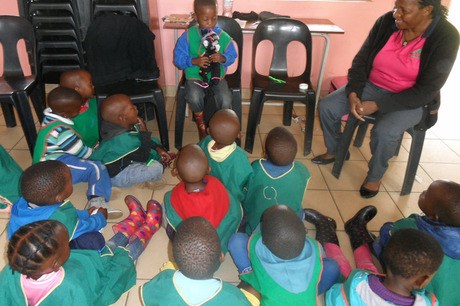
Storytelling
Another focus of our visit was storytelling, using props and stories that were part of the children's culture. Rather than leading the training, we were briefed to encourage the practitioners to plan and engage in the creative process.
I found this challenging, but forced myself to stand back, giving the practitioner time to plan her ideas, instead of flooding her with suggestions. I was amazed to see her competence and the pride in her eyes once the project was finished.
Leading a team to reach a goal is rewarding, but much more satisfying is observing and supporting a person as they construct their own project. I began to see how this approach empowers practitioners and helps them realise how competent they are.
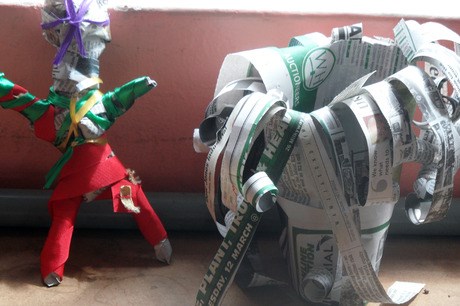
FROM MY EXPERIENCE: JENNIFER PARTRIDGE
I was raised in South Africa and was fortunate to experience my early years as Froebel would have wanted, spending hours engaged in play, using natural props from my garden to spark my imagination. I felt that these childhood experiences were particularly pertinent for our visit, as the focus was on storytelling.
During a paper-folding session, practitioners were asked to make a prop from newspaper and to think of a story to accompany the prop. As they became so engrossed with the activity, Stella invited them to use the additional materials that the Froebel Trust team had collected - for example, corks, ribbon, tights, bottle tops and egg boxes - to extend their paper props. I was amazed at their creativity with the newspaper alone, especially compared to my boring paper aeroplane, and it was wonderful to see that everybody made something completely different.
Next, the practitioners had to tell their stories to the children, and as I observed the storytelling, I found their practice being illuminated by theoretical discussions within the team. The children demonstrated their knowledge and interests to the practitioners, by retelling their stories. The practitioners also observed, reflected on and articulated what the children were telling them.
Observations and discussion were vitally important to Froebel because they help practitioners identify what children know and understand, enabling practitioners to start where the learner is, and build on what children know.
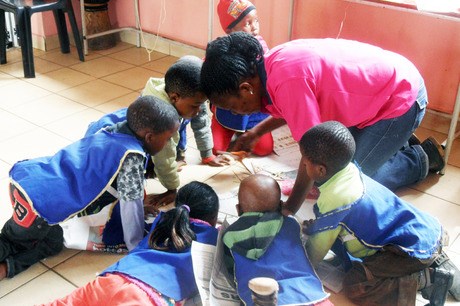
One practitioner had made a kite, and when the children saw her flying it, several wanted to make their own. What unfolded was a wonderful example of children learning through first-hand experiences. They experimented with the length of string, discussed the shape and weight of the kite, considered the wind strength and how fast to run to make the kite fly. The kite-building evolved into a maths and science lesson combined, demonstrating that 'learning should never be compartmentalised, for everything links. Young children learn in an integrated way, and not in neat, tidy compartments' (Bruce, 2010).
An important aspect of the training was that practitioners tell stories in children's home languages. When I went to school, English and Afrikaans were the only official languages, but now South Africa recognises 11.
Storytelling in children's home languages is now becoming possible through the work of the Nal'ibali National Reading-for-Enjoyment Campaign and the Project for the Study of Alternative Education in South Africa (PRAESA), under the directorship of Dr Carole Bloch.
These organisations have produced books in the official languages and adapted well-known folk and fairy stories to make them more relevant to African culture - for example, using a hyena instead of a wolf.
Additionally, the Froebel Trust provided the kindergarten with blank books to enable practitioners and children to create their own stories about their lives in Kliptown.
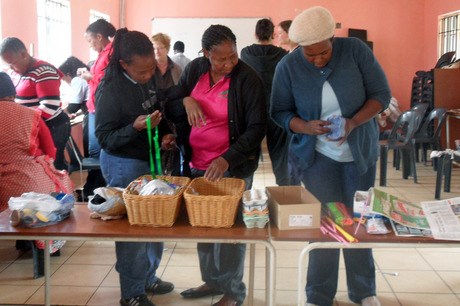
The practitioners were asked to choose a book and make story props out of the everyday materials that we had collected. One practitioner incorporated plastic animals in her prop display, but the children were more interested in the ones we had made from simple, low-cost resources. This observation supports Froebelian philosophy that discourages the overuse of commercial toys, as they are seen as too literal and constrain children's imagination.
Another interesting observation was of the book itself - The Ugly Duckling. Although the story was told in the children's home language, when they retold it they drew chickens instead of ducks because there are no ducks in Kliptown. This was a good example of the children making connections as 'the child uses what they know and understand to make connections with what is less known and understood. Making connections between things is key to the development of understanding, knowledge, making meaning, being creative and imaginative, and developing a rich symbolic life' (Bruce, 2011).
We would like to thank the University of Roehampton for funding us and the Froebel Trust for supporting us throughout this incredible journey, and to remember that 'it is the Froebelian principles (not received method and practice) which continue to serve as navigational instruments and which guide practice into unknown futures and new forms' (Bruce, 2012).
 With thanks to the Froebel Trust, the University of Roehampton and Edinburgh Froebel Network for help funding the books.
With thanks to the Froebel Trust, the University of Roehampton and Edinburgh Froebel Network for help funding the books.
MORE INFORMATION
'All about ... Friedrich Froebel' by T Bruce (2011)
'Bringing together Froebelian principles and practices' by T Bruce (2012) in Early Childhood Practice: Froebel today by T Bruce (ed), Sage
'Can ABCD help to develop a Froebelian approach to early childhood education in one community in Soweto, South Africa?' by T Bruce (2010) in Early Childhood Practice
'Early childhood education in the time of international economic austerity, is it as easy as ABC (D)' by S Louis (2012) in Early Education International
Friedrich Froebel: a selection from his writings by I Lilley (1967), Cambridge University Press
Nal'ibali National Reading-for-Enjoyment Campaign, www.praesa.org.za/nalibali-national-reading-for-enjoyment/ #.U1TI4_ldWSo
Observing Young Children by T Bruce, S Louis and G McCall, G (2014), Sage
PRAESA, www.praesa.org.za
Schemas by S Louis, In the Picture, supported by Southwark Council
The Soweto Project, The Froebel Trust, www.froebeltrust.org.uk/news.html#soweto.



